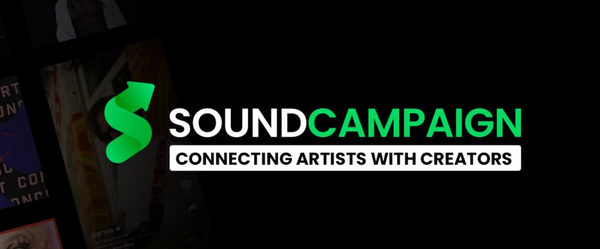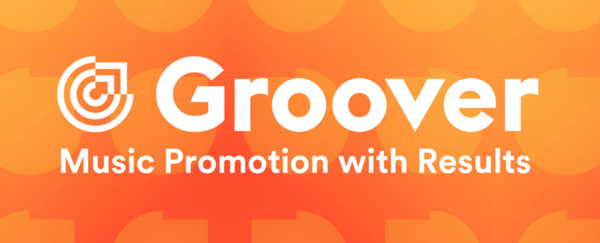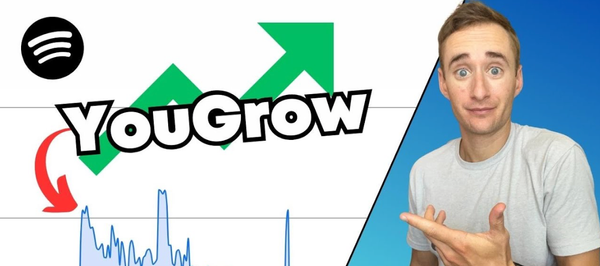Is SubmitHub Worth It? A Comprehensive Review for 2025

In the ever-evolving world of music promotion, artists are always on the lookout for effective ways to get their music heard. SubmitHub has emerged as a popular platform that connects musicians with curators who can help promote their work. But with so many options available, many are left wondering: is SubmitHub worth it? This review will dive into the ins and outs of SubmitHub, exploring its credit system, the pros and cons, user experiences, and how it stacks up against other platforms.
Key Takeaways
- SubmitHub operates on a credit system where artists pay to submit their music to curators.
- Feedback from curators is essential, but not all submissions guarantee a response.
- While there are benefits for independent artists, there are also drawbacks to consider.
- User experiences vary widely, with some finding success and others facing frustrations.
- Comparing SubmitHub to other platforms can help artists decide if it's the right fit for their promotion needs.
Understanding SubmitHub's Credit System
SubmitHub uses a credit system, and it's pretty important to get your head around it if you're planning on using the platform. Basically, you spend credits to submit your music to curators. Let's break down how it all works.
How Credits Work
So, how do these credits actually function? Well, you use them to submit your music to curators on the platform. The number of credits needed for each submission varies, usually between 1 and 3, depending on the curator. Premium credits guarantee that your song will be listened to. Think of it like paying for a guaranteed listen. You can buy credits, or you can earn them (more on that later).
- Credits are used to submit music to curators.
- The cost per submission varies by curator.
- Premium credits ensure your music gets heard.
Refund Policies Explained
What happens if a curator rejects your song? This is where the refund policy comes in. Generally, if a curator rejects your track, you don't get your credits back. However, some curators do offer refunds if they reject a song, but this is rare. SubmitHub also takes a small percentage, regardless. It's a bit of a gamble, but that's the game. Understanding the SubmitHub pricing is key to managing your budget effectively.
Earning Credits Through Feedback
Don't want to spend money on credits? You can earn them! One way to do this is by providing feedback on other artists' music. It takes time and effort, but it's a good way to get credits without opening your wallet. From personal experience, writing helpful reviews takes a few hours each day for weeks. The result can be worthwhile, and you might even get contacted by artists who appreciate your feedback.
Earning credits through feedback requires a significant time commitment. It's not a quick way to get credits, but it can be a good option if you're on a tight budget and want to engage with other artists on the platform.
The Pros and Cons of Using SubmitHub
Benefits for Independent Artists
SubmitHub can be a game-changer for independent artists trying to get their music heard. It offers a direct line to curators, bloggers, and radio stations that might otherwise be unreachable. We've found that the platform's structure encourages curators to actually listen to submissions, since they get paid for their time. This is a big plus compared to just blasting your music out into the void. Plus, the feedback, even if it's a rejection, can be super helpful for improving your craft. It's also relatively affordable, especially when you consider the potential reach. SubmitHub provides flexibility, transparency, and access to a wider range of playlist curators beyond just Spotify. Additionally, its pricing is relatively affordable compared to competitors like PlaylistPush.
- Direct access to curators.
- Potential for valuable feedback.
- Relatively affordable promotion.
SubmitHub is a tool, and like any tool, its effectiveness depends on how you use it. It's not a magic bullet, but it can be a valuable part of your music promotion strategy.
Potential Drawbacks to Consider
Of course, SubmitHub isn't perfect. One of the biggest complaints we've seen is the low acceptance rate. You can spend a lot of credits and still not get added to many playlists or featured on blogs. It can be frustrating to feel like you're throwing money away. Also, the quality of feedback can vary wildly. Some curators give really thoughtful, constructive criticism, while others offer generic comments that aren't very helpful. It's also worth noting that SubmitHub takes a percentage of credits.
- Low acceptance rates can be discouraging.
- Feedback quality varies.
- Cost can add up quickly.
Is SubmitHub a Scam?
This is a question we see pop up a lot: Is SubmitHub a scam? From our experience, the answer is no, but it's important to have realistic expectations. SubmitHub is a legitimate platform that connects artists with curators. However, it's not a guaranteed path to success. You're paying for the opportunity to be heard, not a guarantee of placement or positive reviews. The high submission cost encourages artists to be more selective about who they contact, which leads to a higher approval rate. Many people wonder: is submithub a scam against artists? If you go in expecting overnight fame, you'll probably be disappointed. But if you use it strategically and focus on building relationships, it can be a worthwhile investment.
Navigating the Submission Process
How to Submit Your Music
Okay, so you're ready to get your music out there using SubmitHub. The process is actually pretty straightforward. First, you'll need to create an account, if you haven't already. Then, you upload your track. Make sure you include all the important details: genre, a good description, and similar artists. This helps curators find your music when they're searching. After that, you use credits to submit your music to curators. Remember, sending a demo generally costs 1 to 3 credits, depending on the curator.
Tips for Getting Noticed
Getting noticed on SubmitHub can be tough, but here are a few things we've found that can help:
- Target your submissions. Don't just send your music to everyone. Research curators and only submit to those who cover your genre.
- Write a compelling description. This is your chance to grab a curator's attention. Tell them what makes your music unique.
- Have a professional-sounding track. This should be obvious, but make sure your mixing and mastering are on point.
It's also a good idea to check out the curator's profile to see what kind of music they typically feature. Tailoring your submission to their taste can increase your chances of getting a positive response.
What Happens After Submission
After you submit your music, the curator has a certain amount of time to listen and provide feedback. If they don't respond within that time, you usually get your credits back. If they do respond, they'll either approve your track, reject it, or sometimes offer feedback. If your track is approved, it could get added to a playlist, featured on a blog, or played on a radio show. If it's rejected, well, you can use the feedback to improve and try again. Remember that if the curator doesn't respond in time, the credits are refunded, so you can use them to contact other curators through the platform.
The Role of Curators in Music Promotion
Who Are the Curators?
Curators on platforms like SubmitHub are essentially gatekeepers. They're the people with the playlists, blogs, radio shows, and other outlets that artists crave to be featured on. Some are independent bloggers running a passion project, while others are associated with larger media outlets. They all have one thing in common: they decide what music gets heard by their audience. Understanding Apple Music curators is key to getting your music noticed.
How Curators Decide on Submissions
Curators use a variety of factors to decide whether to accept a submission. It's not just about the music being "good" – it's about whether it fits their audience, their brand, and the overall vibe of their platform. Here's a few things they consider:
- Genre Fit: Does the song fit the genre of their playlist or blog?
- Production Quality: Is the song well-produced and mixed?
- Originality: Does the song sound fresh and unique, or is it a rehash of something else?
- Overall Vibe: Does the song match the overall mood and aesthetic of their platform?
It's important to remember that curators are people with their own tastes and preferences. What one curator loves, another might hate. Don't take rejections personally – it just means it wasn't the right fit.
The Importance of Feedback
One of the most valuable aspects of SubmitHub is the feedback you receive from curators, even if it's a rejection. This feedback can provide insights into what's working and what's not with your music. Pay attention to the reasons curators give for rejecting your songs, and use that information to improve your craft. It's also worth noting that some curators are allegedly using the platform to promote their own music, which creates a conflict of interest. The curator system is not perfect, but it can be a useful tool for music promotion.
Comparing SubmitHub to Other Platforms
SubmitHub vs. Groover
Okay, so let's talk about how SubmitHub stacks up against other platforms, specifically Groover. Both aim to connect artists with curators, but they do it in slightly different ways. Groover, for example, charges a higher submission fee – around two Euros per submission. SubmitHub lets you submit using premium credits for around one to three dollars, and they even give you a couple of free credits every few hours. Groover argues that the higher price encourages artists to be more selective, which could lead to better results. But is it worth the extra cost? That's what we're trying to figure out, right?
Pricing Differences
When it comes to pricing, there are some key differences. With SubmitHub, you're often looking at spending one to three credits per submission, depending on the curator. If a curator rejects your track, you usually don't get those credits back. Groover, on the other hand, has that flat two Euro fee. Here's a quick comparison:
| Feature | SubmitHub | Groover |
|---|---|---|
| Submission Cost | 1-3 credits (approx. $1-$3) | 2 Euros |
| Free Credits | Yes, every 4 hours | No |
| Refund on Rejection | Rarely | Sometimes (if no response in allotted time) |
Choosing between SubmitHub and Groover often comes down to your budget and how targeted you want your submissions to be. If you're on a tight budget, SubmitHub's free credits might be appealing. If you're looking for a more curated experience and are willing to pay a bit more, Groover could be the better option.
User Experience Comparisons
User experience is another big factor. SubmitHub has been around since 2015 and has a pretty established system. One thing that SubmitHub has is a ranking of the "most voted" submissions. I think that SubmitHub should really do without this. It encourages musicians to use the feedback mechanism more in hopes of making it onto the "most voted" page rather than obtaining genuine feedback to improve their art. Groover is a bit newer, and some users find its interface more modern and intuitive. Here are some things to consider:
- Curator Response Rates: Both platforms have curators, but response times and the quality of feedback can vary. It's worth checking out reviews and testimonials to see what other artists have experienced.
- Ease of Use: SubmitHub's interface can feel a little dated to some, while Groover aims for a more streamlined experience.
- Filtering Options: Both platforms let you filter curators by genre and other criteria, but the effectiveness of these filters can differ. Make sure to check out music promotion options before committing to a platform.
Real User Experiences with SubmitHub
Success Stories
We've heard some pretty cool stories from artists who've used SubmitHub. Some have landed spots on popular playlists, which gave their streams a huge boost. Others have connected with bloggers who wrote glowing reviews, leading to more fans. It's not always a guaranteed win, but when it works, it really works. SubmitHub can be a great tool for music promotion.
Common Frustrations
Okay, let's be real, it's not all sunshine and rainbows. A common complaint? Spending credits and getting rejected without much useful feedback. It can feel like throwing money into a void. Also, some curators seem to favor certain genres, which can be frustrating if you're in a niche category. Plus, the whole credit system can feel a bit expensive, especially if you're on a tight budget. Some users find the SubmitHub experience to be less than ideal.
What Users Wish They Knew
If we could go back and give ourselves some advice before diving into SubmitHub, it would be this:
- Do your research on curators. Find ones who genuinely vibe with your genre.
- Don't expect overnight success. It's a process.
- Craft a killer submission message. First impressions matter!
- Be prepared for rejection. It's part of the game.
Honestly, we wish we'd known how much time it takes to earn credits by reviewing other people's music. It's a serious time commitment if you want to fund your own campaigns that way. It's like a part-time job!
Maximizing Your SubmitHub Campaign
Strategies for Effective Submissions
Okay, so you're ready to really use SubmitHub. Don't just throw your music at every curator and hope something sticks. We need a plan! First, really target your submissions. Read curator profiles carefully. Are they into your specific subgenre? Do they seem to genuinely like the kind of music you make? Sending a metal track to an indie-pop blog is just wasting credits. Think quality over quantity.
- Make sure your song is mixed and mastered well. First impressions matter, and a poorly produced track is an instant turn-off.
- Write a compelling, but brief, description. Highlight what makes your song unique and why it would be a good fit for the curator's audience.
- Pay attention to the curator's preferences. Some curators specifically mention what they're looking for or what to avoid. Follow their guidelines!
Building Relationships with Curators
SubmitHub isn't just a vending machine for playlist placements. It's a platform where you can actually connect with people in the music industry. When you get feedback, even if it's a rejection, take the time to respond thoughtfully. Thank the curator for their time and ask clarifying questions if needed. Don't be argumentative or defensive. Building relationships with curators can lead to future opportunities, even if they don't pick up your current track. It's about making connections, not just getting plays.
Think of SubmitHub as a long-term game. One placement might not change your career overnight, but consistent effort and genuine engagement can definitely pay off over time.
Tracking Your Results
Are your SubmitHub campaigns actually working? You need to track your results to find out! Pay attention to which curators are accepting your music and what kind of feedback you're getting. Are there any common themes? Use this data to refine your targeting and messaging. Also, track your streams and social media growth after a placement. Did you see a noticeable bump? This will help you determine the ROI of your SubmitHub campaigns and essential marketing activities.
Here's a simple table you can use to track your submissions:
| Curator | Song | Result | Feedback | Streams (Before) | Streams (After) |
|---|---|---|---|---|---|
| Curator A | Song 1 | Accepted | Great vibe! | 100 | 500 |
| Curator B | Song 1 | Rejected | Not the right fit | 100 | 100 |
| Curator C | Song 2 | Accepted | Catchy melody | 50 | 250 |
To get the most out of your SubmitHub campaign, it's important to plan carefully. Start by choosing the right songs to submit and target the right curators who fit your style. Make sure your music is polished and your profile is complete. Don't forget to follow up and engage with the curators after your submission. For more tips and resources, visit our website today!
Wrapping It Up: Is SubmitHub Worth Your Time?
So, after all this back and forth, what’s the final verdict on SubmitHub? Honestly, it’s a mixed bag. If you’re willing to put in the time and effort, you might just find some gems in the feedback and connections you make. Sure, it can feel a bit like throwing darts in the dark sometimes, and yeah, you might lose a few credits here and there. But if you’re serious about getting your music out there, it’s not a total waste. Just remember, it’s not a magic ticket to success. You’ll still need to hustle and keep improving your craft. So, if you’re ready to dive in and give it a shot, go for it! Just keep your expectations in check and enjoy the ride.
Frequently Asked Questions
What is SubmitHub?
SubmitHub is a website that helps musicians share their music with people like playlist curators, bloggers, and radio hosts.
How does the credit system work?
Musicians buy credits to submit their songs. Each submission costs between 1 to 3 credits, and if a song is rejected, the credits are usually not refunded.
Can I earn credits for free?
Yes! You can earn credits by giving feedback on other musicians' songs.
What if I don’t hear back after I submit my music?
If the curator doesn’t respond in a week, you can get your credits back to use for another submission.
Is SubmitHub a scam?
No, SubmitHub is not a scam. It’s a legitimate platform that connects artists with music influencers.
How can I improve my chances of getting noticed on SubmitHub?
To get noticed, make sure to submit quality music and follow the tips provided by curators.





